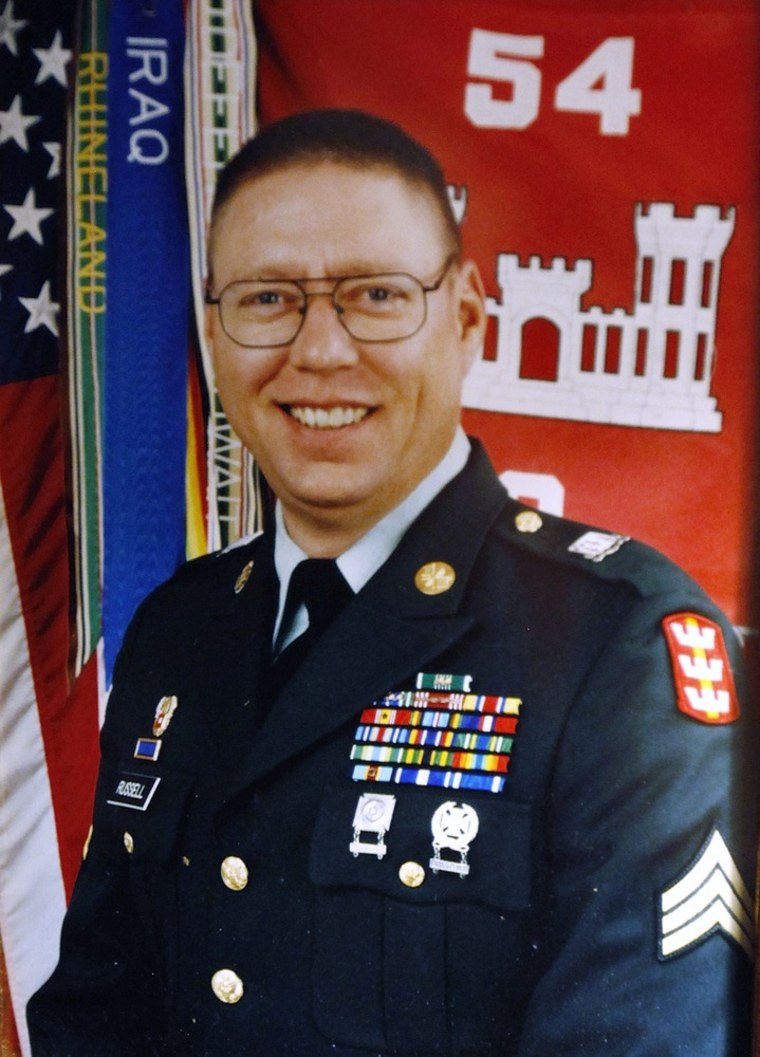An Army sergeant was sentenced Thursday to life in prison without parole for the 2009 killings of five fellow service members at a combat stress clinic in Iraq.
A military judge, Army Col. David Conn, found Sgt. John Russell guilty of premeditated murder on Monday and imposed the sentence Thursday morning. The only other possible penalty for Russell would have been life in prison with the possibility of release.
Russell will be transferred within the next several days to Fort Leavenworth in Kansas, Army spokesman Lt. Col. Gary Dangerfield said late Thursday.
The 14-year veteran from Sherman, Texas, had previously pleaded guilty to unpremeditated murder in exchange for prosecutors taking the death penalty off the table. Under the agreement, prosecutors were allowed to try to prove to an Army judge at Joint Base Lewis-McChord in Washington state that the killings were premeditated. A streamlined court-martial ended Saturday.
The shooting was one of the worst instances of soldier-on-soldier violence in the Iraq war and raised questions about the mental stresses of serving repeated tours of duty.
Killed in the 2009 shooting in Baghdad were Navy Cmdr. Charles Springle, of Wilmington, N.C., and four Army personnel: Pfc. Michael Edward Yates Jr., of Federalsburg, Md.; Dr. Matthew Houseal, of Amarillo, Texas; Sgt. Christian E. Bueno-Galdos, of Paterson, N.J.; and Spc. Jacob D. Barton, of Lenox, Mo.
Russell's lawyers argued that he was deluded by depression and despair at the time. An Army mental health board found that Russell suffered from severe depression with psychotic features and post-combat stress.
Russell had long sought help with sleep troubles and was stammering and crying for help in the days before the shooting. His commanders were so alarmed that they disarmed him and sent him for repeated visits to mental health clinics, said attorney James Culp.
However, prosecutors argued that Russell was trying to paint himself as mentally ill in an attempt to win early retirement — just as he was facing a sexual harassment complaint that could derail his career and his benefits.
The day before the killings, psychiatrist Michael Jones told him that a mental disability retirement would require "some kind of suicidal psychotic crisis," Maj. Daniel Mazzone said during closing arguments, according to the Los Angeles Times.
But when Russell saw Jones again the next day, the psychiatrist said he had no intention of giving him "a golden ticket" out of the Army.
When Russell returned about an hour later, prosecutors say, he was looking for Jones, but wound up killing two patients, a bystander and two other mental health workers, including Navy Cmdr. Springle, who had also briefly treated Russell in the days before the shootings. Jones escaped injury by jumping out a window.
The Associated Press
Related:
